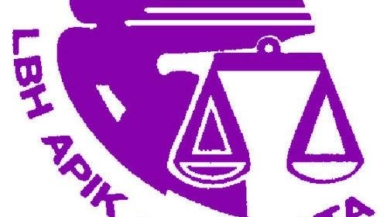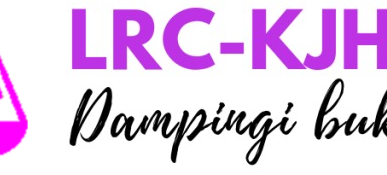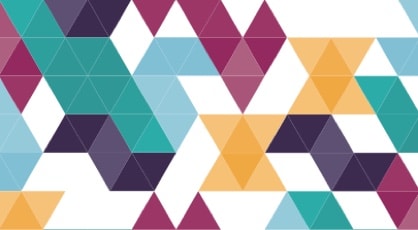Call for proposal
Transfer the Power!
V-22209-ID-SO
-
Grant amount
5000 - 100000 EUROProject Duration
6 - 12 MonthsClosing date
05 Aug 2022 -
-
-
Grants
As observed since 2020, the shrinking civic space in Indonesia has been worsening, characterised by a growing trend of silencing dissent and regulating civil society actions by state apparatus and conservative organisations. This form of repression not only includes the restriction on freedom of expression, but also criminalisation and discrimination against the fundamental rights of individuals, especially those in vulnerable situations. According to reports from Komnas HAM (National Human Rights Commission) and Komnas Perempuan (National Commission on Violence Against Women), attacks on human rights defenders are on the rise.
Voice in Indonesia has identified advocacy opportunities in 3 important legal frameworks associated with this problem. First, the draft criminal law, despite some contentious articles that could potentially violate the rights of women, Indigenous peoples, ethnic minorities, and LGBTI people, as well as restrict freedom of speech and criminalise extramarital sex and all same sex conduct, is still being pushed by the parliament to be passed since December 2021. Although civil society organisations have already begun advocating for the revision of the articles, there is still no assurance that it will be successful, especially since the government had refused to share the text with the public and it is still being debated in parliament.
Second, after six years of advocacy, the Law on the Elimination of Sexual Violence (abbreviated as UU TPKS) was finally passed on 12th April 2022, aiming to combat sexual violence in Indonesia. The National Commission on Violence Against Women praised the House of Representatives Legislative Body for its commitment to passing the bill, particularly for recognising the four forms of sexual violence addressed in the bill: sexual harassment (physical and non-physical), forced contraception, forced sexual intercourse, and sexual exploitation. However, the debate hasn’t stopped yet; the real work begins when the law becomes a government regulation (peraturan pemerintah), and how to persuade the local government to adopt the law through local regulations.
Third and lastly, SOGIE-based discrimination has been added to the problem of marginalisation based on group identity and social class this year, further exacerbating the vulnerable position of various rightsholders groups. The local administration of Bogor, West Java, has approved a law labeling transgender people and LGBT people as “sexual deviations”. Because article six of the ordinance singles out homosexuality and transgender as sexual deviation and could potentially discriminate against people based on their gender identity and sexual orientation, the discriminatory law called “Prevention and Countering of Sexual Deviation” issued recently by the Bogor government is not only harmful to LGBTI people in terms of persecution, but it is also against Human Rights.
Through this Sudden Opportunity grant, Voice in Indonesia encourages civil society organisations (CSOs) to work together to address any of the abovementioned threats that affect marginalised and disadvantaged groups. It is an opportunity for strategic advocacy, CSO mobilisation, and/or collective action to challenge discrimination, promote equal access and opportunities, enhance social well-being, confront injustice, and/or encourage social development through changes in policies/laws, legal decisions, or a shift in public attitudes and practices.
More specifically, Voice in Indonesia is looking to:
- Support the coalition/alliance/consortium / collective action initiatives to respond to the unexpected moments to support the immediate and necessary advocacy work which has policy implications and needs an immediate response at the local or national level.
- Continue to advocate for the law in terms of implementation and adaptation.
- Rightsholder’s initiatives to strengthen the coalition/alliance/consortium/collective action of disability organisations, women’s organisations, and victim service providers to advocate for inclusive and accessible services in accompaniment, recovery, and judicial processes.
Sudden opportunities can vary greatly, depending on the situation. They can, however, be described through the common elements they share.
Some examples of inspiring responses towards sudden opportunities:
- Students and activists from Women’s Movement against Violence Alliance (Gerak Perempuan) participate in campaign of end sexual violence in the education institutions in front of Education and Cultural Ministry: https://www.thejakartapost.com/academia/2020/07/04/difficulties-surrounding-sexual-violence-eradication-bill.html.
- Indonesia Sudden Opportunity Grantee: https://voice.global/grantees/enhancing-civil-society-participation-in-the-deliberation-of-the-bill-of-penal-code/
- The Civil Coalition for the Rights of Gender and Sexual Diversity (Kami Berani) on Monday protested against Bogor City administration that has issued the regional regulation on preventing and managing sexual deviant behaviors (P4S). https://en.tempo.co/read/1573580/coalition-fear-bogors-local-law-p4s-will-discredit-lgbt-community
Practicing the Values of Voice
Voice believes in the principle of Nothing About Us Without Us. In practice, this means Voice rightsholder groups need to be at the center of any collective action effort. They must be involved in the conceptualisation, planning, and implementation of any Sudden Opportunity grant. They are equal partners in any consortium, network, or coalition, playing key governance and leadership roles.
Possible interventions would require creating platforms and spaces where Voice target groups can self-advocate for their economic, social, and cultural rights. Joint participation of a network, consortium, or coalition of human rights defenders, private institutions and companies, faith leaders, NGOs, and self-interested individuals or intellectuals to use nonviolent action to amplify the voices of marginalised groups is necessary.
Your project should target any of the following Voice rightsholder groups:
- Age-discriminated vulnerable groups, notably the young and elderly.
- Lesbian, gay, bisexual, transgender, and intersex (LGBTI) people.
- Persons with disabilities.
- Indigenous groups and ethnic minorities.
- Women facing exploitation, abuse, and/or violence
Voice has a strong preference for projects that are designed from an intersectional point of view. This means projects will work with more than one of the target groups to address overlapping vulnerabilities and forms of discrimination. For example, young women and girls living with disabilities face multiple layers of exclusion at the same time (age, gender, and disability).
Voice also supports initiatives investing in the wellbeing and mental health of people at the frontlines, especially the rightsholders. We invite and encourage applicants to explore ways through which the project will allocate resources for fostering a sense of community support and self-care, which can further enable a safer and more open environment to continue the work in sensitive and high-risk contexts.
Linking and Learning
Linking and Learning are at the heart and soul of Voice. As part of the Voice community, all grantees are expected to participate in facilitated meetings and gatherings, enabling the exchange of ideas and learnings from each other’s experiences. Applicants must demonstrate in their proposals how they will identify, document, and share their learnings as they implement their project. These may come in many forms, such as blog posts, videos, photo essays or audio recordings.
Voice values diversity and inclusion. All grantees are expected to be able to interact with and learn from a diverse group of people coming from different backgrounds, orientations, and experiences. Interested applicants must be willing to work in a diverse community, including representatives from all of the Voice target groups.
From the numerous applications received the following grantees have been successful as part of this Call for Proposals. If you like to join Voice please see the current list of open Calls for Proposals Indonesia
Indonesia![Academy for the Elimination of Sexual Crimes]()
Academy for the Elimination of Sexual Crimes
LBH APIK Jakarta (Jakarta Legal Aid for Women and Children)Indonesia![Increasing the access of women victims of sexual violence to services for advocating derivative regulations from the Sexual Violence Criminal Act (ACCESS for SVCA Regulation)]()
Increasing the access of women victims of sexual violence to services for advocating derivative regulations from the Sexual Violence Criminal Act (ACCESS for SVCA Regulation)
LRC-KJHAM (Legal Resources Center for Gender and Human Rights)-
About
As observed since 2020, the shrinking civic space in Indonesia has been worsening, characterised by a growing trend of silencing dissent and regulating civil society actions by state apparatus and conservative organisations. This form of repression not only includes the restriction on freedom of expression, but also criminalisation and discrimination against the fundamental rights of individuals, especially those in vulnerable situations. According to reports from Komnas HAM (National Human Rights Commission) and Komnas Perempuan (National Commission on Violence Against Women), attacks on human rights defenders are on the rise.
Voice in Indonesia has identified advocacy opportunities in 3 important legal frameworks associated with this problem. First, the draft criminal law, despite some contentious articles that could potentially violate the rights of women, Indigenous peoples, ethnic minorities, and LGBTI people, as well as restrict freedom of speech and criminalise extramarital sex and all same sex conduct, is still being pushed by the parliament to be passed since December 2021. Although civil society organisations have already begun advocating for the revision of the articles, there is still no assurance that it will be successful, especially since the government had refused to share the text with the public and it is still being debated in parliament.
Second, after six years of advocacy, the Law on the Elimination of Sexual Violence (abbreviated as UU TPKS) was finally passed on 12th April 2022, aiming to combat sexual violence in Indonesia. The National Commission on Violence Against Women praised the House of Representatives Legislative Body for its commitment to passing the bill, particularly for recognising the four forms of sexual violence addressed in the bill: sexual harassment (physical and non-physical), forced contraception, forced sexual intercourse, and sexual exploitation. However, the debate hasn’t stopped yet; the real work begins when the law becomes a government regulation (peraturan pemerintah), and how to persuade the local government to adopt the law through local regulations.
Third and lastly, SOGIE-based discrimination has been added to the problem of marginalisation based on group identity and social class this year, further exacerbating the vulnerable position of various rightsholders groups. The local administration of Bogor, West Java, has approved a law labeling transgender people and LGBT people as “sexual deviations”. Because article six of the ordinance singles out homosexuality and transgender as sexual deviation and could potentially discriminate against people based on their gender identity and sexual orientation, the discriminatory law called “Prevention and Countering of Sexual Deviation” issued recently by the Bogor government is not only harmful to LGBTI people in terms of persecution, but it is also against Human Rights.
Through this Sudden Opportunity grant, Voice in Indonesia encourages civil society organisations (CSOs) to work together to address any of the abovementioned threats that affect marginalised and disadvantaged groups. It is an opportunity for strategic advocacy, CSO mobilisation, and/or collective action to challenge discrimination, promote equal access and opportunities, enhance social well-being, confront injustice, and/or encourage social development through changes in policies/laws, legal decisions, or a shift in public attitudes and practices.
More specifically, Voice in Indonesia is looking to:
- Support the coalition/alliance/consortium / collective action initiatives to respond to the unexpected moments to support the immediate and necessary advocacy work which has policy implications and needs an immediate response at the local or national level.
- Continue to advocate for the law in terms of implementation and adaptation.
- Rightsholder’s initiatives to strengthen the coalition/alliance/consortium/collective action of disability organisations, women’s organisations, and victim service providers to advocate for inclusive and accessible services in accompaniment, recovery, and judicial processes.
Sudden opportunities can vary greatly, depending on the situation. They can, however, be described through the common elements they share.
Some examples of inspiring responses towards sudden opportunities:
- Students and activists from Women’s Movement against Violence Alliance (Gerak Perempuan) participate in campaign of end sexual violence in the education institutions in front of Education and Cultural Ministry: https://www.thejakartapost.com/academia/2020/07/04/difficulties-surrounding-sexual-violence-eradication-bill.html.
- Indonesia Sudden Opportunity Grantee: https://voice.global/grantees/enhancing-civil-society-participation-in-the-deliberation-of-the-bill-of-penal-code/
- The Civil Coalition for the Rights of Gender and Sexual Diversity (Kami Berani) on Monday protested against Bogor City administration that has issued the regional regulation on preventing and managing sexual deviant behaviors (P4S). https://en.tempo.co/read/1573580/coalition-fear-bogors-local-law-p4s-will-discredit-lgbt-community
Practicing the Values of Voice
Voice believes in the principle of Nothing About Us Without Us. In practice, this means Voice rightsholder groups need to be at the center of any collective action effort. They must be involved in the conceptualisation, planning, and implementation of any Sudden Opportunity grant. They are equal partners in any consortium, network, or coalition, playing key governance and leadership roles.
Possible interventions would require creating platforms and spaces where Voice target groups can self-advocate for their economic, social, and cultural rights. Joint participation of a network, consortium, or coalition of human rights defenders, private institutions and companies, faith leaders, NGOs, and self-interested individuals or intellectuals to use nonviolent action to amplify the voices of marginalised groups is necessary.
Your project should target any of the following Voice rightsholder groups:
- Age-discriminated vulnerable groups, notably the young and elderly.
- Lesbian, gay, bisexual, transgender, and intersex (LGBTI) people.
- Persons with disabilities.
- Indigenous groups and ethnic minorities.
- Women facing exploitation, abuse, and/or violence
Voice has a strong preference for projects that are designed from an intersectional point of view. This means projects will work with more than one of the target groups to address overlapping vulnerabilities and forms of discrimination. For example, young women and girls living with disabilities face multiple layers of exclusion at the same time (age, gender, and disability).
Voice also supports initiatives investing in the wellbeing and mental health of people at the frontlines, especially the rightsholders. We invite and encourage applicants to explore ways through which the project will allocate resources for fostering a sense of community support and self-care, which can further enable a safer and more open environment to continue the work in sensitive and high-risk contexts.
Linking and Learning
Linking and Learning are at the heart and soul of Voice. As part of the Voice community, all grantees are expected to participate in facilitated meetings and gatherings, enabling the exchange of ideas and learnings from each other’s experiences. Applicants must demonstrate in their proposals how they will identify, document, and share their learnings as they implement their project. These may come in many forms, such as blog posts, videos, photo essays or audio recordings.
Voice values diversity and inclusion. All grantees are expected to be able to interact with and learn from a diverse group of people coming from different backgrounds, orientations, and experiences. Interested applicants must be willing to work in a diverse community, including representatives from all of the Voice target groups.
-
How to apply?
-
-
From the numerous applications received the following grantees have been successful as part of this Call for Proposals. If you like to join Voice please see the current list of open Calls for Proposals

-
Indonesia
![Academy for the Elimination of Sexual Crimes]()
Academy for the Elimination of Sexual Crimes
LBH APIK Jakarta (Jakarta Legal Aid for Women and Children) -
Indonesia
![Increasing the access of women victims of sexual violence to services for advocating derivative regulations from the Sexual Violence Criminal Act (ACCESS for SVCA Regulation)]()
Increasing the access of women victims of sexual violence to services for advocating derivative regulations from the Sexual Violence Criminal Act (ACCESS for SVCA Regulation)
LRC-KJHAM (Legal Resources Center for Gender and Human Rights)
-





